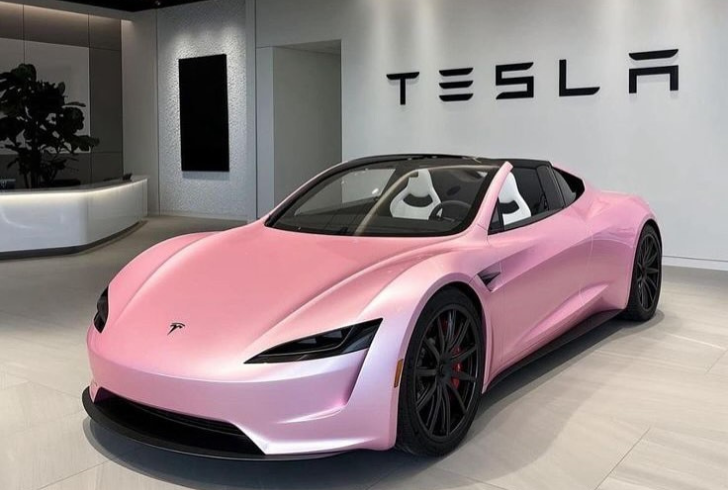Elon Musk is one of the most influential figures in technology today. His work with companies like Tesla and SpaceX has revolutionized entire industries. Musk has redefined what’s possible by consistently pushing boundaries and challenging the status quo. So, why Elon Musk is a leader in technology? It's his relentless drive to innovate, his visionary leadership, and his commitment to solving global challenges.
Here's a closer look at why Musk has earned his place as a tech icon.
Early Life and Entrepreneurial Drive
Elon Musk was born in 1971 in Pretoria, South Africa. From a young age, he demonstrated a keen interest in technology. For example, at just 12 years old, he sold his first software—a game called Blastar. Later on, Musk moved to Canada and then to the United States, where he attended the University of Pennsylvania, earning degrees in economics and physics. Following this, he briefly attended Stanford for a Ph.D. program but dropped out after just two days to pursue entrepreneurial ventures that would later change the world.
Visionary Leadership - Transforming Industries

Instagram | trustmystocks | Elon Musk drives change with SpaceX.
Elon Musk’s leadership is driven by his ability to look beyond the present and focus on the future. Unlike many others, he doesn’t settle for minor improvements; instead, he aims to completely transform entire industries. For instance, Musk’s companies, such as SpaceX and Tesla, are built on this visionary approach. In addition, he constantly seeks to redefine what is possible, challenging existing norms and pushing his teams to innovate in ways that others might consider unattainable.
Innovation as a Core Value
At the core of Musk's leadership is a commitment to innovation. He doesn’t just want to create new products — he wants to change the way industries operate. For example, SpaceX disrupted the space industry by developing reusable rockets. This innovation has drastically lowered the cost of space launches. Additionally, Musk's vision for Tesla goes beyond electric cars; it includes sustainable energy solutions, from solar power to energy storage systems.
Leading by Example
Musk is known for his hands-on approach to leadership. He works long hours and is deeply involved in the technical aspects of his companies. This work ethic sets an example for his teams, encouraging them to match his level of commitment. Musk's direct involvement in the engineering and design processes also ensures that he can solve problems quickly, which is crucial in the fast-paced tech world.
Musk’s Impact Across Industries
Musk’s influence stretches far beyond electric vehicles and space travel. His ventures span several industries, and each one reflects his determination to create long-lasting, transformative change.
SpaceX: Revolutionizing Space Travel
Founded in 2002, SpaceX is one of Musk’s most ambitious projects. The company’s mission is to make space travel more affordable and accessible. For example, SpaceX pioneered the development of reusable rockets, significantly reducing the cost of space launches. The Falcon 9 rocket has completed numerous successful missions to the International Space Station. Furthermore, SpaceX is working on the Starship project, which aims to transport humans to Mars and beyond.
Tesla - Leading the Electric Vehicle Revolution

Instagram | nerosgarage | Tesla drives the future of EVs.
Since taking over as CEO of Tesla in 2008, Musk has played a key role in reshaping the electric vehicle (EV) industry. The company’s first car, the Tesla Roadster, proved that electric cars could be high-performance and desirable. Today, Tesla offers a range of electric vehicles, including the Model S, Model 3, and Model X, all of which have set new standards for safety, performance, and sustainability. Additionally, Musk’s vision for Tesla extends beyond cars, with the company’s work in solar energy and battery storage contributing to a more sustainable future.
SolarCity - Advancing Solar Power
Musk’s commitment to a sustainable future also includes renewable energy. He played a pivotal role in SolarCity, a company founded by his cousins that aimed to make solar energy more accessible. In 2016, SolarCity merged with Tesla, aligning with Musk’s vision of creating an integrated renewable energy company. The merger allowed Tesla to offer solar roof tiles and energy storage products, contributing to a cleaner, more sustainable energy grid.
Neuralink and Artificial Intelligence
Musk’s interests extend beyond renewable energy and space exploration. In 2016, he co-founded Neuralink, a company focused on developing brain-computer interfaces. The goal is to create technology that can directly connect the human brain to computers, which could lead to significant advancements in healthcare and artificial intelligence (AI). Initially, Neuralink hopes to help those with neurological conditions, but Musk envisions much broader applications in the future, including enhancing human capabilities.
The Boring Company - Solving Urban Traffic
Traffic congestion is a significant problem in many urban areas. Musk founded The Boring Company in 2016 to address this challenge, intending to create underground transportation tunnels. These tunnels aim to alleviate traffic by offering fast, efficient routes for electric vehicles. For example, in 2018, the company completed a test tunnel in California and has since proposed similar projects in cities like Las Vegas. As a result, The Boring Company’s innovations have the potential to reshape urban transportation systems dramatically in the future.
Risk-Taking and Resilience
Elon Musk is known for his bold approach to business and technology. He has repeatedly taken risks, investing his own money in ventures that others might have dismissed. For instance, when SpaceX and Tesla faced financial struggles, Musk poured his funds into both companies to keep them afloat. Even in the face of failure, his resilience has been a defining characteristic of his leadership style. Musk’s willingness to take risks has helped his companies achieve groundbreaking innovations.
Shaping the Future of Technology
Musk’s leadership continues to shape the future of technology. His companies are at the forefront of revolutionary changes in industries ranging from electric vehicles to space exploration. But Musk’s work isn’t limited to these fields alone. His ventures like Neuralink and The Boring Company show that he’s not afraid to tackle huge challenges, whether it’s solving the urban transportation crisis or exploring ways to merge humans with artificial intelligence. As technology continues to evolve, Musk’s influence will undoubtedly remain a major force in shaping the future.
Elon Musk’s Legacy in Technology
Elon Musk’s leadership has forever changed the landscape of modern technology. His relentless focus on innovation and his bold vision for the future have disrupted entire industries, including automotive, aerospace, and renewable energy. Through companies like SpaceX, Tesla, and SolarCity, Musk has demonstrated what’s possible when visionary leadership meets technological ambition. His continued influence in fields like AI and brain-computer interfaces further cements his place as one of the most important leaders in technology today.










